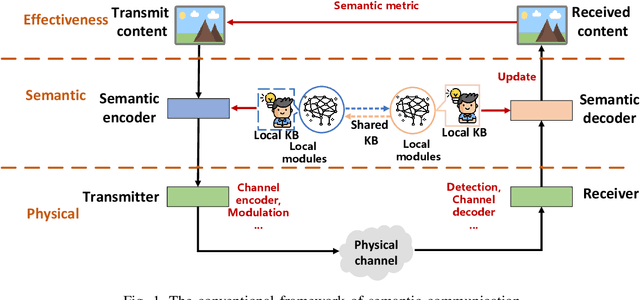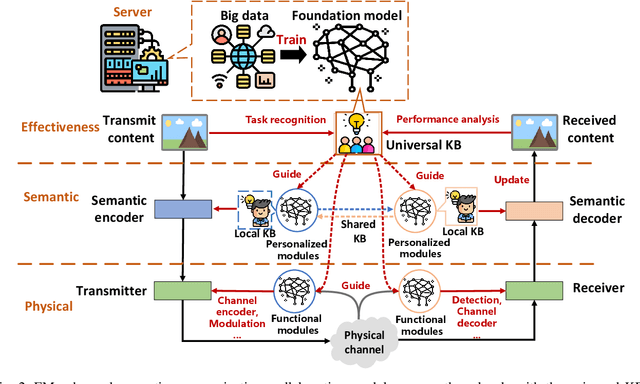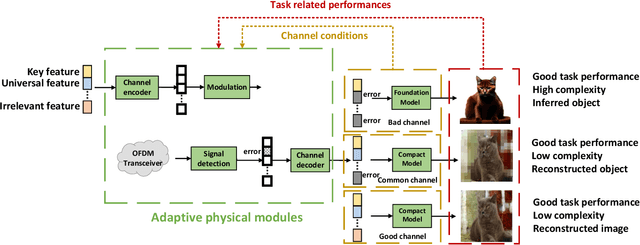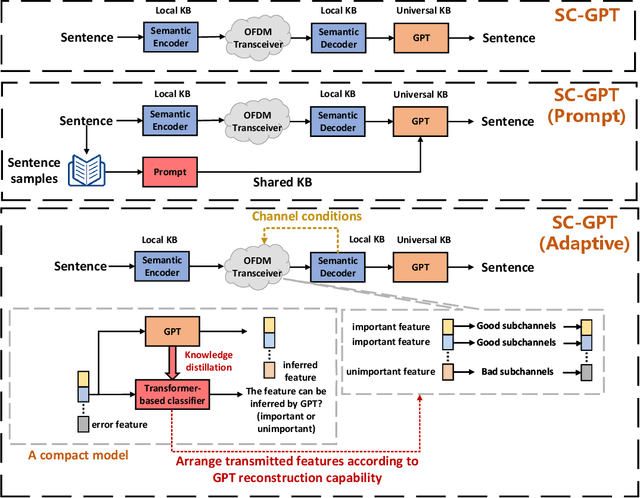Semantic Communications using Foundation Models: Design Approaches and Open Issues
Paper and Code
Sep 23, 2023



Foundation models (FMs), including large language models, have become increasingly popular due to their wide-ranging applicability and ability to understand human-like semantics. While previous research has explored the use of FMs in semantic communications to improve semantic extraction and reconstruction, the impact of these models on different system levels, considering computation and memory complexity, requires further analysis. This study focuses on integrating FMs at the effectiveness, semantic, and physical levels, using universal knowledge to profoundly transform system design. Additionally, it examines the use of compact models to balance performance and complexity, comparing three separate approaches that employ FMs. Ultimately, the study highlights unresolved issues in the field that need addressing.
 Add to Chrome
Add to Chrome Add to Firefox
Add to Firefox Add to Edge
Add to Edge